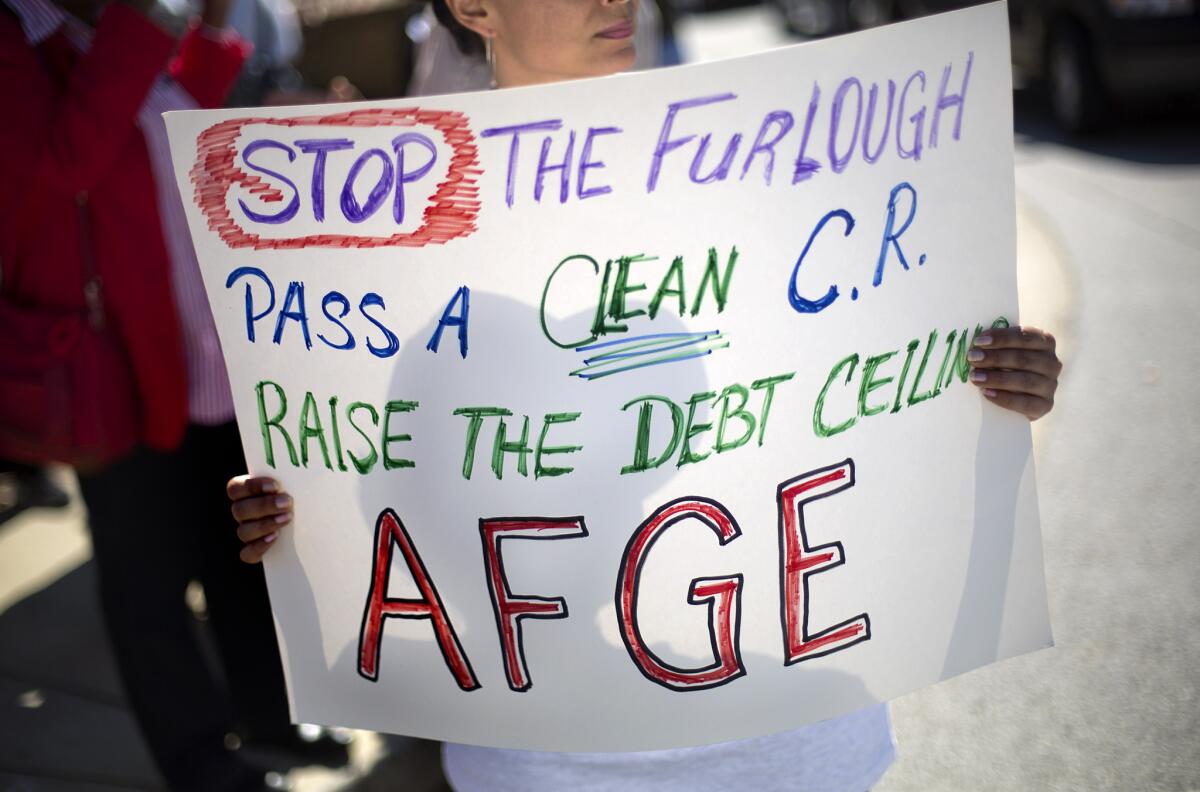D.C. must ban the brinkmanship

- Share via
It was deja vu all over again in Washington on Tuesday as the federal government entered the second week of its partial shutdown. Calling on Democrats to negotiate a budget deal, House Republicans proposed a new version of the deficit-reduction “supercommittee” that unsuccessfully sought a similar agreement in 2011 — only this time, with less power and no deadline. But the GOP was just posturing. Rather than prolonging the shutdown and raising the prospects of a ruinous default, House Republicans should agree to reopen federal agencies, raise the debt limit and then begin the long, hard process of negotiating the elusive “grand bargain” on the budget that both sides want.
To recap for those who tuned in late to this fiasco, federal agencies ran out of money Oct. 1 after House Republicans refused to pass a stopgap funding bill unless it defunded or delayed the 2010 Affordable Care Act, also known as Obamacare. Never mind that they don’t have the votes in the Senate for that, let alone the two-thirds majority in both houses needed to override a certain presidential veto. Since then, Republicans in the House have argued that Democrats are to blame for the shutdown because, rather than negotiating over Obamacare, they insist on a short-term funding bill free of controversial riders.
As President Obama made clear Tuesday, however, the issue isn’t whether the two sides will negotiate. It’s the context for those negotiations. Senate Democrats have been trying for six months to convene a conference committee with House Republicans on the budget resolution for the fiscal year that began Oct. 1, which could have averted the fight they’re having now. But the GOP doesn’t like the procedural rules that apply to such measures, which limit the minority party’s influence in the Senate while boosting it in the House.
The new deficit-reduction committee the GOP proposed Tuesday would be bipartisan in terms of membership and power, but not agenda. It wouldn’t be able to recommend tax increases or even the elimination of tax loopholes. Instead, it could address only spending limits, the debt ceiling and “reforms” to entitlement programs such as Medicare and Medicaid. What’s worse, House Speaker John A. Boehner (R-Ohio) seemed to be making the committee a prerequisite to reopening the government or raising the debt limit.
In any case, as the first supercommittee’s dismal results showed, there’s no deal within easy reach. So there’s no point in keeping the government shut down, costing the U.S. economy an estimated $160 million per day in the interim, let alone threatening not to pay some of the government’s creditors when the debt limit is reached later this month. It’s past time for the House to accept Obama’s offer: Reopen the government, lift the debt ceiling and then hammer out a long-term budget deal.
More to Read
A cure for the common opinion
Get thought-provoking perspectives with our weekly newsletter.
You may occasionally receive promotional content from the Los Angeles Times.










